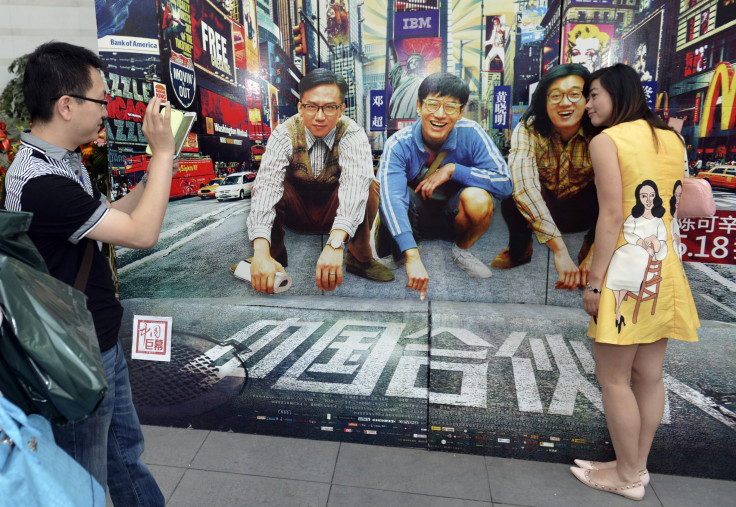Domestic Chinese Films Now Outperforming Foreign Titles, A Dramatic Reversal From 2012

China’s domestic film industry is booming and outpacing foreign films at the box office. While Hollywood blockbusters starring super hero hunks with high-tech gadgets and indestructible limbs like "Iron Man 3" and "Man of Steel" still raked in millions of dollars, domestic Chinese films, especially those depicting ordinary Chinese people instead of the once-favored willowy, sword-wielding heroes, are growing in popularity with the country's expanding cinema-going public.
For years, Chinese filmmakers limited their subject matter to the grand, historical epics with martial arts heroes and their aesthetics to sweeping shots of landscapes, but that is beginning to shift.
"The past half year has seen the Chinese audience identify with and feel proud of their own lives," Peter Chan, the director of "American Dreams in China," a film about young Chinese in the late 1980s starting an English instruction school, said in a recent newspaper interview, according to Reuters. "They want to watch their own lives in the cinema, watch realistic themes."
“American Dreams in China,” based on true stories from Yu Minhong, founder of New Oriental Education & Technology Grp (NYSE:EDU) and his partners, earned more than 100 million yuan ($16 million) in the first three days after release.
The film then went on to become the fifth-highest-grossing film in China this year, earning 537 million yuan in less than two months after its release in the mainland alone, bringing China’s total box office sales in the first half of the year to nearly 11 billion yuan ($1.8 billion), according to the government agency that tracks media.
"This is a big boost to the market and it set the tone for the year-round revenue to exceed 20 billion yuan," said Kady Yang, senior analyst at entertainment consulting firm EntGroup, according to Reuters.
Cinemas in China brought in $2.8 billion in 2012, and they could bring in $3.3 billion this year, which would be a record high. While that number is still small compared to the North American revenue of $10.8 billion last year, the Chinese box office could grow as much as 15.6 percent annually for the next five years, and hit $5.5 billion by 2017, predicted PricewaterhouseCoopers, a consulting firm.
Wang Jianlin, officially the richest person in China, has perhaps benefitted more than others from the rise of China’s cinemas. Wang’s Dalian Wanda is now the world’s largest movie exhibitor in the world after purchasing American chain AMC Entertainment for $2.6 billion in 2012, according to the Hollywood Reporter. Wanda has more than 500 cinemas with 6,000 screens in China and has just ordered up to 120 new giant screen theaters.
Domestic films account for a big portion of that growth. In the first half of 2013, domestic films outperformed foreign ones by 65 percent in China, a new trend at the Chinese box office – in the first half of 2012, imported films earned twice as much as domestic productions.
While Hollywood blockbusters like "Iron Man 3" remain popular in China, the success of local content has become more prominent as cinemas expand into second- and third-tier cities where stories about ordinary people may be more relevant for moviegoers, Reuters reported.
"For viewers who grew up watching TV and videos from the Internet, they are more familiar with and more receptive to movies with local culture and human interest elements," said Yin Hong, director of the Center for Film and Television Studies at Tsinghua University.
As the cinema-going sector grows in China, filmmakers can now diversify their topics to aim at target audiences instead of hoping to appeal to everyone with the epic martial art films of the previous decade.
“Tiny Times,” a film based on a book of the same name by best-selling author Guo Jingming, was criticized as a promotion of pop idol actors. The film’s audience had an average age of 20, and was more than 80 percent female, according to an analysis of data from Weibo, China’s equivalent of Twitter, but that very specific group still constitutes a large number of people in a country with a nearly 1.4 billion population. The film scored more than 400 million yuan at the box office.
"When the total market size is big enough, it is possible to develop some niche markets," said Zhang Benhou from Beijing-based HuiCong Research, according to Reuters.
© Copyright IBTimes 2024. All rights reserved.





















